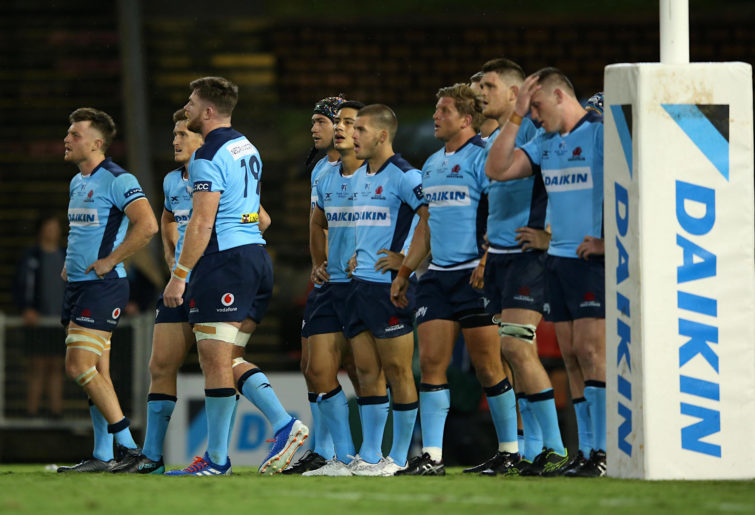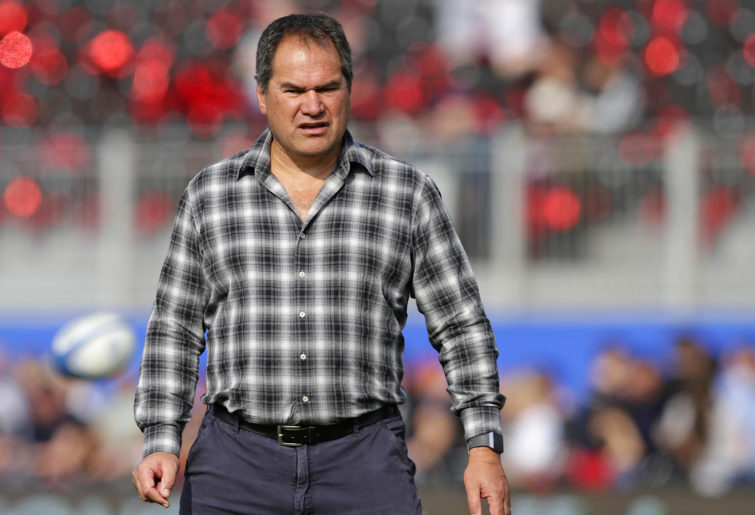Each season of Super Rugby (and indeed the Wallabies), we as spectators start with a fresh slate, full of hope and optimism about the year ahead.
We wonder how our team will fare and whether the changes in the off-season are going to bear fruit. We read articles about this player being acquired or that coach being sacked. We wonder (and argue) about whether the new player or coach is a good fit until the results start to come in.
But what of the players?
Sure, they mouth the platitudes about being excited for the challenge of the new year ahead and during the trial games speak about the positives they’re taking out of a loss.
The reality of professional sports, however, is that often it’s only another year and the players are being paid to turn up to training, do various tasks according to the plan of the day then go out on the weekend and play a game of rugby.
While we fans hang off every dropped ball or missed tackle, the reality for many of the players is that it’s also just a job.
Yes, for some it’s just a job and they go through the motions with varying levels of effort week in and week out depending on their age, contract status and future prospects.
Before you object about the slight on players and their individual sacrifices (or conversely their undeserved opportunities), ponder this.
How many workplaces do you know where there is someone who doesn’t pull their weight? Or the talented bloke who gets away with anything, or the one who complains that it isn’t fair that he hasn’t been given a raise, or the one who takes shortcuts all the time and doesn’t work as hard as everyone else and management doesn’t do anything, or one who has a better deal elsewhere and just has to see out his time before he’s off, or the one who back-stabbed another worker to management, or the workers banding together against management until the boss is sacked?
And how often do you see a new bloke come in, full of enthusiasm, new ideas, optimism, energy and a willingness to give it his all, until over a few beers at a far-flung pub a couple of the old salts pull him aside and tell him how it is at this place, or the boss is a tool and they know better, or the boss made this mistake, or doesn’t back the lads and his best bet is to support his mates.
Conversely, how would a boss who backs the boys regardless of their output be supported? What would the favourites say about a boss who makes sure they get a run, or who smashes a door in anger and swears and sarcastically claps at the authorities when they pull the lads up for poor workmanship?
Eventually he’d be sacked for his lack of results and the lads would be sad to see him go.
The Waratahs appear to be so very much like many work places and reek of a poor culture with a number of senior players just going through the motions.

(Ashley Feder/Getty Images)
Why is that?
Workers (players) might think the boss (coach) is a tool and therefore they know better. They know what should be done. They know better how to run the company, or this new boss is upsetting the status quo. They’re not happy and the attitude is reflected in the outcome.
Sometimes, management gives them the chance to put up or shut up or to phrase it another way, the boys just got sick of it and they took control.
You could also call it a player-led revolution.
And after a week of revolution, what comes next? Where do the workers go now? Do they keep the new standard or go back to the safety of going through the motions, and the outcomes and results that entails?
The Waratahs need a clean out, and it’s extensive. This year can already be written off and will be a chance for some to stand up and be counted, while others can move on. The question is: does anyone have the stomach or authority to do it?
And what about the Wallabies? Do the rest of the workers know that with the new boss on board they are going to get a fair chance at a promotion for that new role? Or are the usual favourites going to slide in there?
Dave Rennie, more than any other coach of recent times, has a pivotal moment coming that will make or break his entire career as a Wallabies boss.

(Photo by Henry Browne/Getty Images)
The workers have been told that they will be given a shot at promotion based on merit (form). Being a new boss, the workers are taking that at face value and it appears the result is already bearing fruit. Many workers have upped their output and are no longer going through the motions. Conversely, some of the older favourites have decided or know that with the new boss, they haven’t got a hope and are simply waiting to see out their time.
These are the ones who, although they would be expected to be leaders to the youth, are in reality marking time with dropped balls, half-hearted tackle efforts and jogging into position. The effort is obvious.
Dave Rennie will do more for the Wallabies culture than any new program by actually promoting or selecting and rewarding those players putting in the effort to go above and beyond that which they get paid for week in and week out than opting to play it safe and selecting a side filled with the regulars.
One team will energise and motivate all the workers, regardless of whether they are picked, the other will categorise him as just another boss in the eyes of the workers and his credibility for the rest of his Wallabies career.
I hope that Dave Rennie and his team select the players who’ve demonstrated the form, desire and culture the Wallabies need.
I’d rather they get flogged in every game and then go through a period of honourable losses, including the criticisms that come with not winning when they should, while the team beds down culture and the art of learning how to win than playing safe with a team of entitled players who treat it as a job.
I reckon the workers will be watching to see who gets selected and it will have a cultural effect on more than just the opening matches.































































































